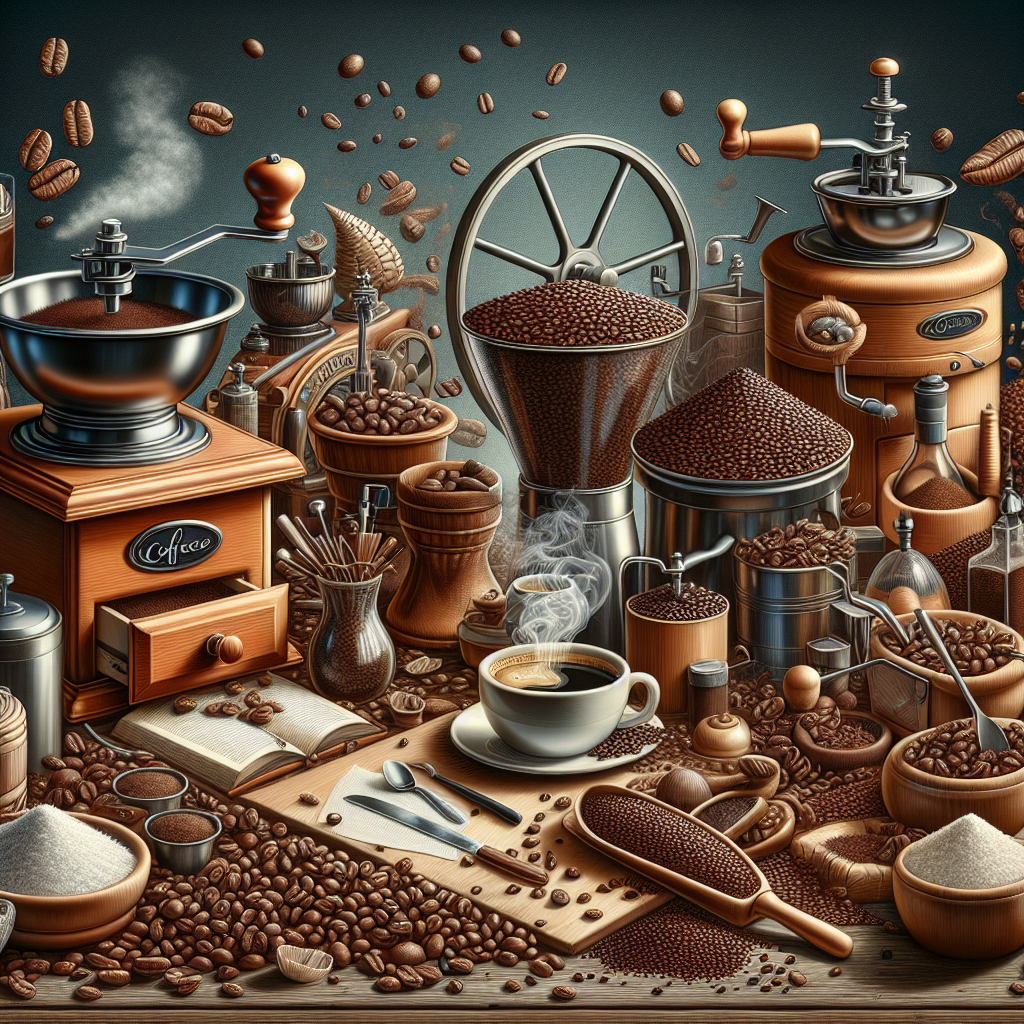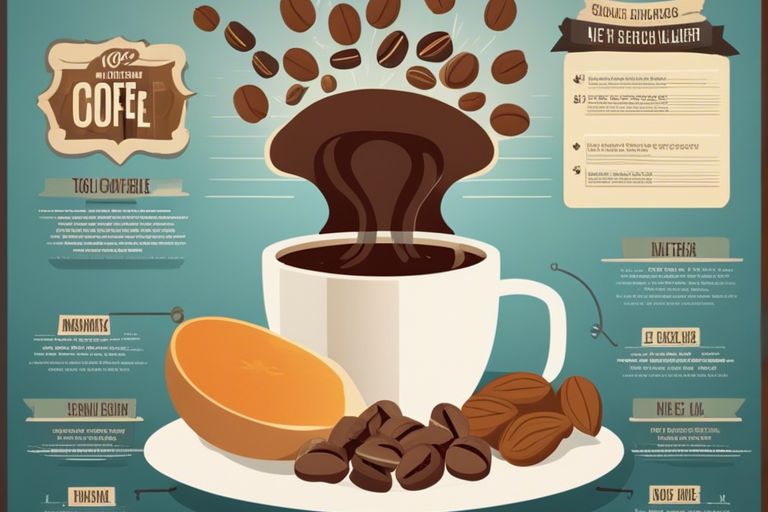Introduction
Imagine waking up to the aroma of freshly brewed coffee, its rich scent filling the air and promising a delightful start to your day. Coffee enthusiasts often ponder whether it is better to use “coffee ground” or “coffee grind.” This seemingly simple question is pivotal in determining the quality of your brew. Let’s delve deep into the world of coffee to understand these terms and discover how they can make or break your caffeine experience.
- Understanding Coffee Ground and Grind
- The Importance of Grinding Your Own Coffee
- Types of Coffee Grinders
- Choosing the Right Grind for Your Brewing Method
- Key Takeaways
- FAQs
- Conclusion
Understanding Coffee Ground and Grind
The terms “coffee ground” and “coffee grind” might seem interchangeable at first glance, but they hold distinct meanings in the coffee world. Coffee ground refers to the actual particles of coffee beans after they have been ground. On the other hand, coffee grind denotes the consistency or size of those particles. The grind size plays a crucial role in how quickly water extracts flavor from the coffee during brewing.
The Importance of Grinding Your Own Coffee
Why should you consider grinding your own coffee? The answer lies in freshness and flavor. Pre-ground coffee loses its aromatic compounds rapidly, resulting in a stale taste. By grinding your own beans, you ensure that your coffee retains its vibrant flavors and aromas. For those new to this practice, exploring options like the Zingy Portable Manual Coffee Grinder may be an excellent starting point.
Enhanced Freshness and Flavor
Grinding your own beans offers unparalleled freshness. The moment you grind coffee, the essential oils and aromatics are released, which significantly enhance the flavor profile of your brew. For more insights into the benefits of grinding your own beans, refer to our detailed article on the cost-effectiveness of grinding your own coffee.
Types of Coffee Grinders
The market offers a plethora of coffee grinders that cater to different needs and preferences. Here’s a glimpse into some popular options:
Manual Coffee Grinders
Manual grinders are beloved for their portability and simplicity. They allow you to control the grind size precisely. Consider the Brushed Stainless Steel Manual Coffee Grinder by Integrity Chef for a reliable and durable option.
Electric Coffee Grinders
For those seeking convenience and speed, electric grinders are a go-to choice. They offer various grind settings and are ideal for busy mornings when time is of the essence. One top-rated model is the Breville BCG820BSSXL The Smart Grinder Pro Coffee Bean Grinder, known for its precision and efficiency.
Choosing the Right Grind for Your Brewing Method
The grind size you choose directly impacts the brewing process and final taste of your coffee. Different brewing methods require different grind sizes:
- Coarse Grind: Ideal for French press and cold brew methods.
- Medium Grind: Suitable for drip coffee makers and pour-over brewers.
- Fine Grind: Best for espresso machines and Aeropress with a short brew time.
Understanding the correct grind size ensures optimal extraction and a flavorful cup every time. To learn more about grind sizes for specific brewing methods, visit our article on grind recommendations for Keurig brewers.
Key Takeaways
- Coffee Ground vs. Coffee Grind: “Coffee ground” refers to the particles, while “coffee grind” denotes their size.
- Freshness Matters: Grinding your own beans preserves flavor and aroma.
- Grinder Types: Choose between manual and electric grinders based on your needs.
- Match Grind to Brew: Use the appropriate grind size for your chosen brewing method.
FAQs
Is it better to buy pre-ground coffee or whole beans?
Whole beans are preferable if you seek maximum freshness and flavor. Grinding just before brewing yields the best results.
What is the best grind size for a French press?
A coarse grind is ideal for French press brewing, as it allows for proper extraction without over-extraction.
Can I use a blade grinder for espresso?
Blade grinders are not recommended for espresso as they produce uneven grind sizes. Opt for a burr grinder instead.
Conclusion
In the quest for the perfect cup of coffee, understanding the nuances of “coffee ground” versus “coffee grind” is essential. By choosing to grind your own beans and selecting the right grind size for your brewing method, you unlock a world of rich flavors and aromas. Whether you prefer a manual grinder like the KONA Manual Coffee Grinder or an electric one, investing in a good grinder can transform your coffee experience. So, embark on this aromatic journey and savor every sip of your perfectly brewed coffee.
For more guidance on buying and grinding your own beans, explore our comprehensive guide on buying and grinding coffee beans. Happy brewing!








